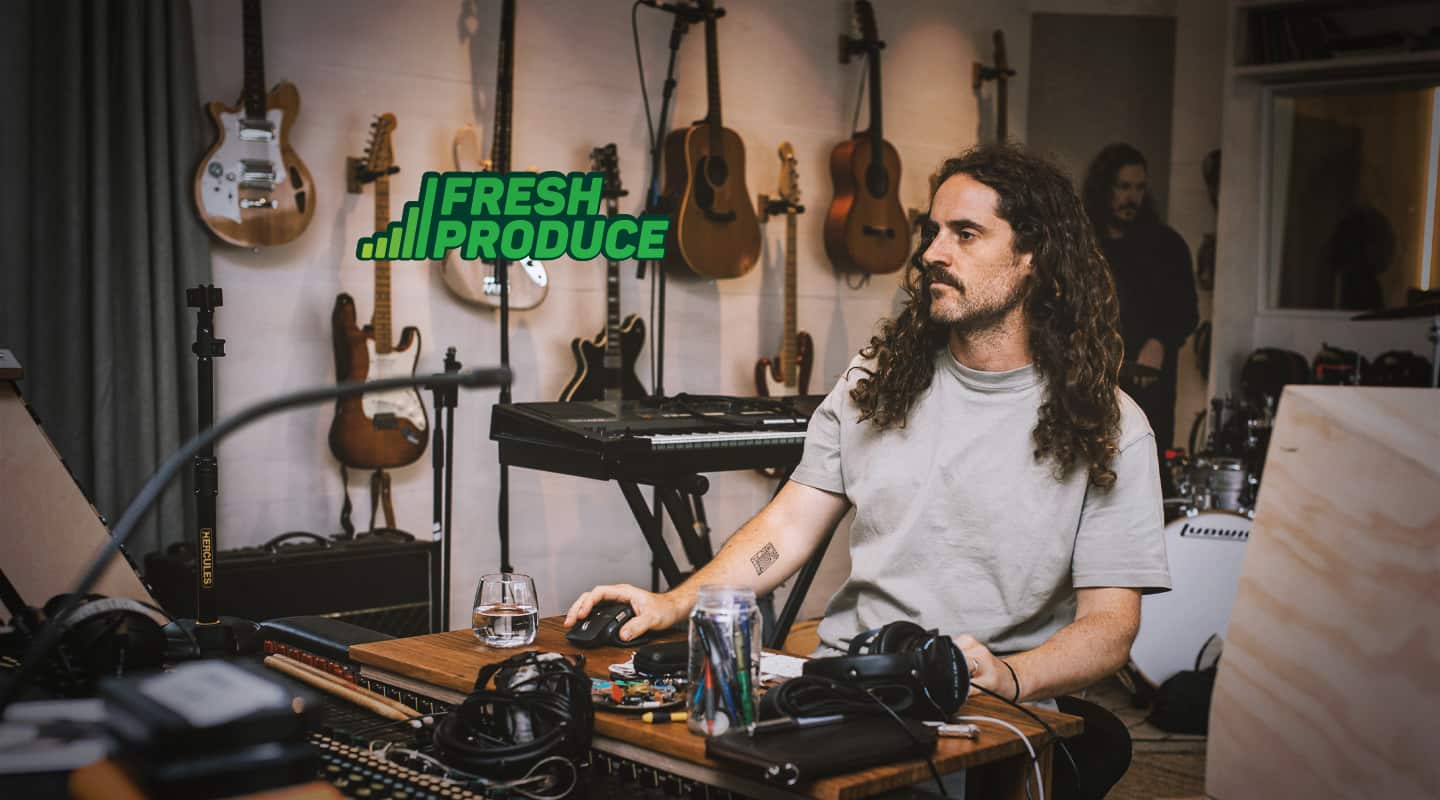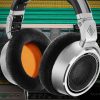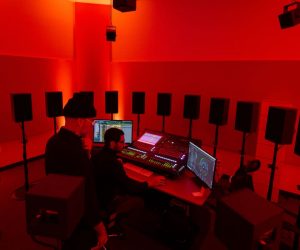
Fresh Produce: Oscar Dawson
We track down Holy Holy’s Oscar Dawson to his new studio on the Mornington Peninsula for a chat about his production work, studio tools and techniques.
Interview: Neil Gray
AT: Describe your journey to becoming a music producer.
Oscar Dawson: I remember messing around with a Fostex four-track cassette recorder when I was a kid. That might have been my favourite time in my musical history. I used to use a really shitty multi-effects pedal and record layers of guitar and voice, and put them through the pedal, add delay, reverb, distortion, or whatever, then buss them onto one of the tracks, keep recording more overdubs… repeat. I’d be lost in there for hours.
I played in bands as a young adult and started getting those old Digidesign MBoxes, Digi 002, Digi 003, basic ProTools setups. I think of those years as the dark days of digital as the plug-ins and converters, were so bad. I started out making demos for my band, then kept at it, making demos for other bands. I was in enough recording environments that I picked up mic techniques, and learnt about what types of microphones were commonly used for what types of applications. I just kept doing it, gradually bought pieces of equipment, and eventually got to a point where someone paid me a small amount to manage and mix a recording session.
AT: Describe your current studio setup.
Oscar Dawson: I record in ProTools with UAD converters. I use UA’s Console application for running the monitoring side of my setup. I do have a 32-channel 1978 Yamaha PM2000 console but it’s busted — the joys of consoles. I’m working to fix that at the moment and I’ll use a lot of the console preamps once it’s going again — maybe I’ll use it for summing, too. I use a pair of JLM 1290 preamps, and an Undertone MPDI-4 (four preamp) unit. Those are my go-to pres — they’re glorious. I have one of those Hairball 1176 compressors (rack unit, not 500 series), and a Distressor. I finished building my studio around six months ago, so I’m recovering from that experience before I dive any deeper into more outboard purchases. Plug-in wise, I’ve got lots of UAD plugs and lots of external DSP! I’m currently running 18 cores. Beyond that, I love the FabFilter and Sound Toys plugs and I’ve been getting more into some of the iZotope plugs as well.
AT: Describe your favourite, ideal or preferred, workspace/methods and why?
Oscar Dawson: If I’m working with a band — and by this I mean, a collection of multiple humans who play instruments all together simultaneously and that’s their main creative approach — I like everybody to be in the same room together. It just makes communication so much easier. I like doing preproduction, possibly just in a rehearsal studio so the stakes feel lower. I like to get everybody playing together. We can just tell what works, more immediately than when we spend ages building songs in the computer, especially around tempo and key. If it’s more a ‘production’-style project, or a band that tends to like doing more programming and sequencing, I would, of course, flow with that and work within the computer. Maybe I’ll build from demo stems, if they exist. I find those types of projects work better when there is just one or two creative minds in the band or project to bounce off, rather than four or five individuals. I like to play instruments, too. I will always try to get the performances out of the instrumentalists in a project but if the band members are relaxed about it, I’ll often find myself playing a lot. I don’t like sitting at my computer and just hitting record and layering playlists in ProTools for later comping. That’s my least favourite thing to do, and if it is to be avoided by me playing a part, then we do that. If it is to be avoided by the player leaving for a short while to do some foundational work, we do that. I don’t like moving slowly.


AT: Favourite microphone or any other pieces of kit that are indispensable to you?
Oscar Dawson: I’m a practical producer — I’ll work within the parameters allowed. For example, time that we have available, Covid lockdowns, are we interstate, and so on, and also I’ll follow the energy of the performer in ascertaining the right piece of gear. So, all to say, I don’t obsess about microphones or other pieces of kit.
Quite often I find that a vocalist will become intimidated when you plonk them in a fancy booth with a beautiful old shockmounted microphone and a pop-filter. In these types of instances, I might be in the control room with the band, communicating with the singer via a talkback mic. They start feeling excluded from the control room discussions, they find it hard to get their mix right, lose a bit of confidence, and then the vibe is completely lost. This doesn’t always happen, but when it does, I am reminded how little value the fancy microphone is. I recently made a record with a band, where the singer is super dynamic, and also likes to just whack out a vocal pass here and there, take breaks, talk shit, do another full pass, not do too many drop-ins. After all, this singer hand-holds a mic on stage and puts in amazing performances so why not just do that in studio? We ended up recording the whole record with a Beta 58, hand held, with the singer right next to me in the control room. We could chat between takes, find a relaxed energy, and that worked perfectly. The takes are awesome. I don’t think we would’ve got that if we put this singer in front of my old U87 in a booth. This is a roundabout way of saying; I don’t have a favourite microphone.
Indispensable kit? Beyerdynamic headphones. My room. My Unity Audio monitors (Boulder mkII). I had to mix a lot on headphones during the Covid times, and I do love headphones, but, once I could get back on my monitors in a proper room, things felt like they were ‘back to normal’.
No point overthinking, then miking up an amp, spending time getting a tone, then trying to re-create the performance. We’ll lose hours and become sad in the process
AT: In the last 10 years, what pieces of gear, or features, that have proven to be game changers for you?
Oscar Dawson: The Universal Audio kit has been so useful and made life easier. There may be better converters out there, but for pure practicality, I’ve found the integration of the interfaces with the software so simple and intuitive. Likewise, the plug-ins sound fab.
This sounds a bit niche but some very basic and long overdue Pro Tools features have been improved on over the years. I remember when there was no off-line bouncing. That’s no longer the case. I remember when they wouldn’t compensate for plug-in delay on side-chain inputs. That’s no longer the case. Little things like that make such a difference and save so much time.
AT: How have your working methods changed over the last 10 years?
Oscar Dawson: I’ve become less pedantic and more focussed on the right energy. I’m less stressed about making things sound ‘perfect’. I’ve always done a lot in the box — I came up during a time when, with my background and training, it wasn’t possible to learn and practice using outboard equipment, tape machines, or consoles. I had to just use the computer. They’ve gotten so much better, it’s ridiculous. So, that hasn’t really changed, other than the ease of use and power of the computer — so I’m doing lots of programming, lots of manipulation of sound in the box. That only increased during the COVID isolation months.
I am more open to remote recording than I used to be. If there is a great drummer interstate who can record him or herself and send files through, then great, do it. If we want changes? We’ll ask for them. If the guitarist is just DI’d and puts down a great performance, and we use an amp sim to bring it to life, do it. No point overthinking, then miking up an amp, spending time getting a tone, then trying to re-create the performance. We’ll lose hours and become sad in the process.
Another big change: don’t follow any tradition of recording order. Don’t leave vocals until last. Don’t do drums first. It doesn’t have to be that way. I often try to get a programmed drum part down, or just a rough guide, then do basic instruments, then vocals. Then come back to the guitars, other programming, maybe, then live drums. Don’t let the vocalist to just sit there waiting to do their bits, it’s a nightmare for them and may waste more time in the long run.
AT: Any tips/words of wisdom for someone starting out?
Oscar Dawson: Take your time. Don’t rush, in life, or in sessions. When mixing, let the mix emerge, don’t force it. Don’t listen to references too much, they’ll confuse you and make you feel bad. Do listen in the car. Get a decent pair of monitors and set them up in a decent-enough room. Pay for plug-ins — your computer will run better, and you’ll respect the plugs more. Always ask, at the higher level, what is the piece of music trying to say; what is the purpose of the music?

























Very impressive, different and diligent. I take my Hat off to you. Take care, stay safe and Musically Yours.
Jan Anthonisz-1941: Composer.